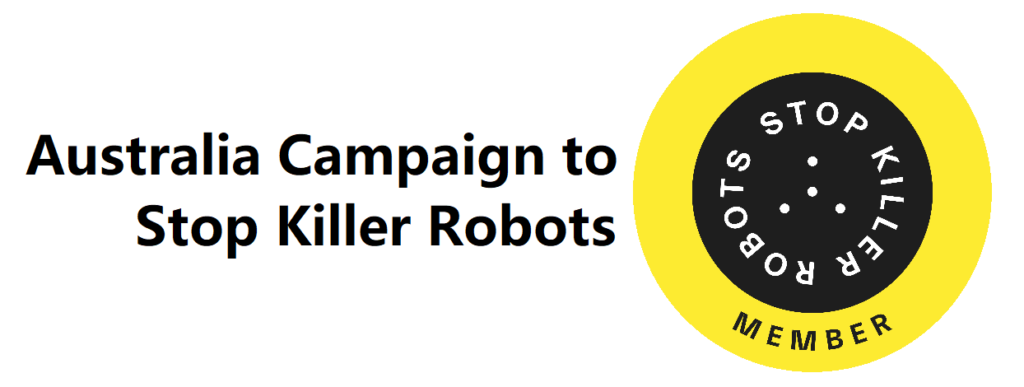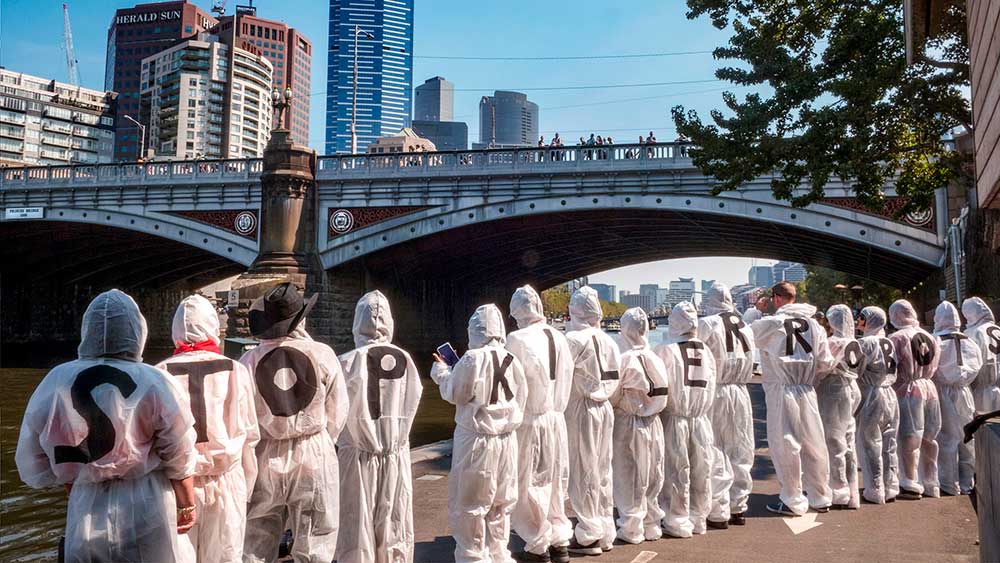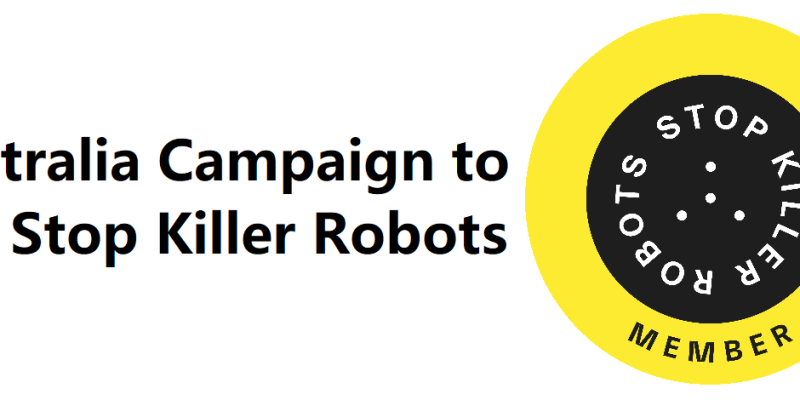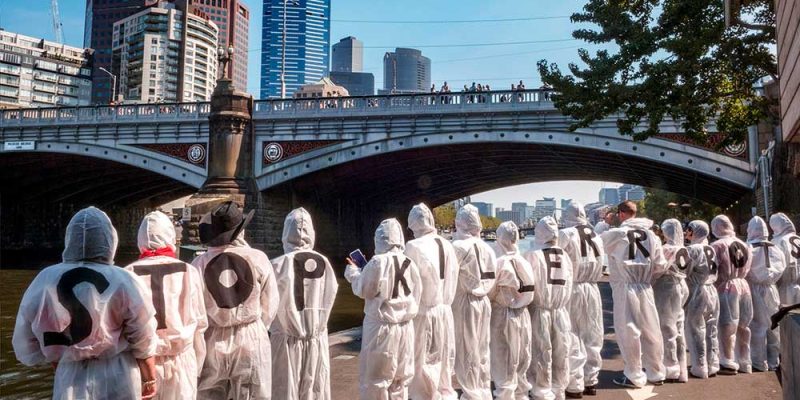
Join us on a mission to raise awareness and build support for a pre-emptive ban on lethal autonomous weapon systems in the Pacific region. We’re shaking things up by ensuring the voices of smaller Pacific nations are heard loud and clear on this pressing issue. From the Cook Islands to Vanuatu, we’re working with Pacific government officials and civil society to increase their involvement in the vital conversation surrounding lethal autonomous weapon systems. Our goal is simple: to create a legally binding treaty that prevents these dangerous weapons from being used, preserving the cultures and livelihoods of Pacific nations for generations to come.

In SafeGround we work to increase the voice and involvement of Pacific nations in the conversation surrounding lethal autonomous weapon systems. Historically, the Pacific region has been used by foreign militaries as a testing ground for weapons such as nuclear weapons after WW2. It also became a theatre for WW2 fighting, with forces littering the ground and ocean with explosive remnants of war. SafeGround wants to prevent this from happening again.
INTERNATIONAL UMBRELLA
We work under the international umbrella; The Campaign to Stop Killer Robots that aims to raise awareness and gain support for a preemptive ban regarding fully autonomous weapons. The campaign believes that the loss of meaningful human oversight when operating a weapons system is unlawful, unethical, immoral, and poses a grave threat to international stability. Our project aligns with this goal by engaging Pacific nations and building regional relations with relevant government officials, as well as developing targeted engagement plans and providing ongoing support and information to groups and policy makers regarding autonomous weapons and the need for an international treaty.
Our main aim is to build support for a new legally binding instrument that prevents autonomous weapons from being used and to raise awareness of the dangers that fully autonomous weapons pose. To achieve this we meet with Pacific governments/officials and civil society, and encourage governments to vocalise and think about policy development and engage in the conversation around autonomous weapons.
GEOGRAPHIC SCOPE
Initially we focused on Pacific countries that have permanent missions to the UN in Geneva and that have signed or ratified the Mine Ban Treaty and/or the Cluster Munitions Convention. However, no Pacific nation has been active in the lethal autonomous weapon systems process in the Convention on Certain Conventional Weapons also known as the CCW, so in December 2021 we decided we had to change tack. After talking to Tim Wright in ICAN we found that Pacific nations are much better represented at the UN in New York than in Geneva, so our focus shifted to NY. This was highly successful, and we are now forging strong relationships with representatives and civil society from Kiribati, Vanuatu, and others.
We reached out to countries such as the Cook Islands, Federated State of Micronesia, Fiji, Kiribati, Nauru, Niue, Palau, Papua New Guinea, Marshall Islands, Samoa, Solomon Islands, Tonga, Tuvalu, and Vanuatu. These countries are all member states of the regional body called the Pacific Small Island Developing States (PSIDS), many of which have already been very active in creating the treaty on nuclear weapons. The Small Island Developing States (SIDS) forum was originally designed to focus on sustainable development, but they have now extended their interest toward more general peace and security issues.
Our outreach engages individuals from civil society and government with the concerns relating to fully autonomous weapons. In engaging the Pacific, many marginalised voices can be brought into the dialogue, making it more diverse and inclusive. The lack of meaningful human control when operating weapons systems is immoral, unlawful, unethical, and highly disruptive to international stability. Because of this, our campaign has an intersectional focus that highlights the disproportionate effects that Killer Robots could have on marginalised groups in the Pacific.
By spreading awareness about the grave risks that lethal autonomous weapon systems pose, we want to garner support amongst Pacific people and government officials for a treaty. This is to support Pacific nations in protecting their cultures and livelihoods against the threat of lethal autonomous weapon systems. We anticipate that any Pacific support for a treaty will generate a ‘snowball’ effect that prompts other Pacific states to follow suit.
OPEN ACCESSIBLE MULTILATERAL FORUM
After ten years of discussions at the UN Convention On Certain Conventional Weapons, there is a growing awareness of the need to address this issue in a multilateral forum that is open and accessible to all, such as the UN General Assembly. We are now in a phase targeting relevant national, regional, or thematic stakeholders to advance treaty negotiation efforts that engage at the diplomatic and UN level. In fact, since 2023, discussions about banning lethal autonomous weapons were moved from Geneva to New York, and in October 2023 the United Nations General Assembly made its first official UN resolution on lethal autonomous weapons. AS a result the UN General-Secretary called for submissions from all nations, intergovernmental organisations and civil society.
This is a huge step forward and provides a platform for small countries to have a say in their future.




